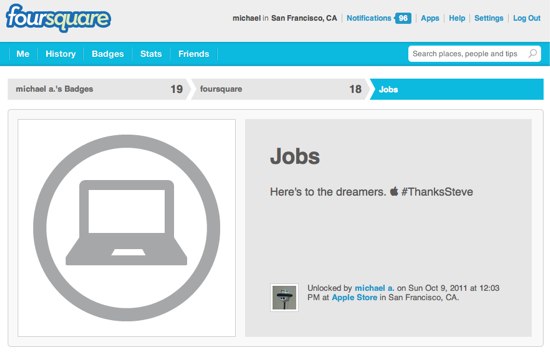What happens to Apple now that Steve Jobs is gone? Check out this 2009 post from Chris Dixon that compares Apple and Steve Jobs to Sony and Akio Morita titled MAN AND SUPERMAN.
Akio was famous for slamming focus groups, instead focusing on building things that consumers didn’t know that they want until it already exists. Steve Jobs felt the same way. Few consumer electronics companies have that kind of courage.
Reprinted in full below, with his permission:
MAN AND SUPERMAN
There are two broad philosophical approaches to explaining the forces that drive world events. The first one is sometimes called the Great man theory, neatly summarized by the quote ”the history of the world is but the biography of great men.” This view was famously espoused by the philosopher Hegel and later Nietzche, who called such great people Ubermenchen (“supermen”).
The alternative view argues that history is largely determined by a complex series of societal, political, institutional, technological and other forces. This view argues that great people are more a product of their time than the times are a product of them.
You can apply these theories to companies, in particular to the founders of technology companies who keep their companies great long after their “natural” life cycle. Most successful companies start with one great product and ride its growth but fail to pull off a second act.
The companies that defy this natural cycle are invariable run by “supermen” (or women). Akio Morita founded Sony in 1946 and was a very active CEO until 1994. At the time he left, Sony had a $40B market cap. Today it is valued at $28B. Akio had an incredible run of hit products: the first transistor radio, the first transistor television, the Walkman, the first video cassette recorder, and the compact disc. Akio ran Sony based on his intuitions. For example, he ignored focus groups that hated the Walkman, saying:
“We don’t ask consumers what they want. They don’t know. Instead we apply our brain power to what they need, and will want, and make sure we’re there, ready”
Steve Jobs co-founded Apple in 1976. He was pushed out in in May 1985 when the company was valued at about $2.2B. He returned in 1996 when Apple was worth $3B. Today it is worth $169B. Jobs famously micromanages every product detail and like Akio makes decisions based on intuitions.
Bill Gates was the co-founder and CEO of Microsoft, building it to an astounding $470B market cap. Under him, Microsoft had multiple acts, among them: DOS, Windows, Office, and enterprise server software. Since Steve Ballmer became CEO, the company’s value has declined to $223B. I’m sure Steve Ballmer is a smart and passionate guy, but he’s no superman.
Some observers like the author Jim Collins think great companies are all about culture, not a singularly great leader. Collin’s “built to last” case study companies included Circuit City and Fannie Mae, both of which have been catastrophic failures. His “portfolio” has underperformed to S&P.
It is convenient to think you can take greatness and bottle it up and sell it in a book. In fact, life is unfair: there are geniuses and then there are the rest of us. When great leaders go away, so does the greatness of their companies.
 My knowledge of hurricanes is limited, mostly, to watching Anderson Cooper on CNN standing in the wind and rain. It never seems all that bad.
My knowledge of hurricanes is limited, mostly, to watching Anderson Cooper on CNN standing in the wind and rain. It never seems all that bad. 




